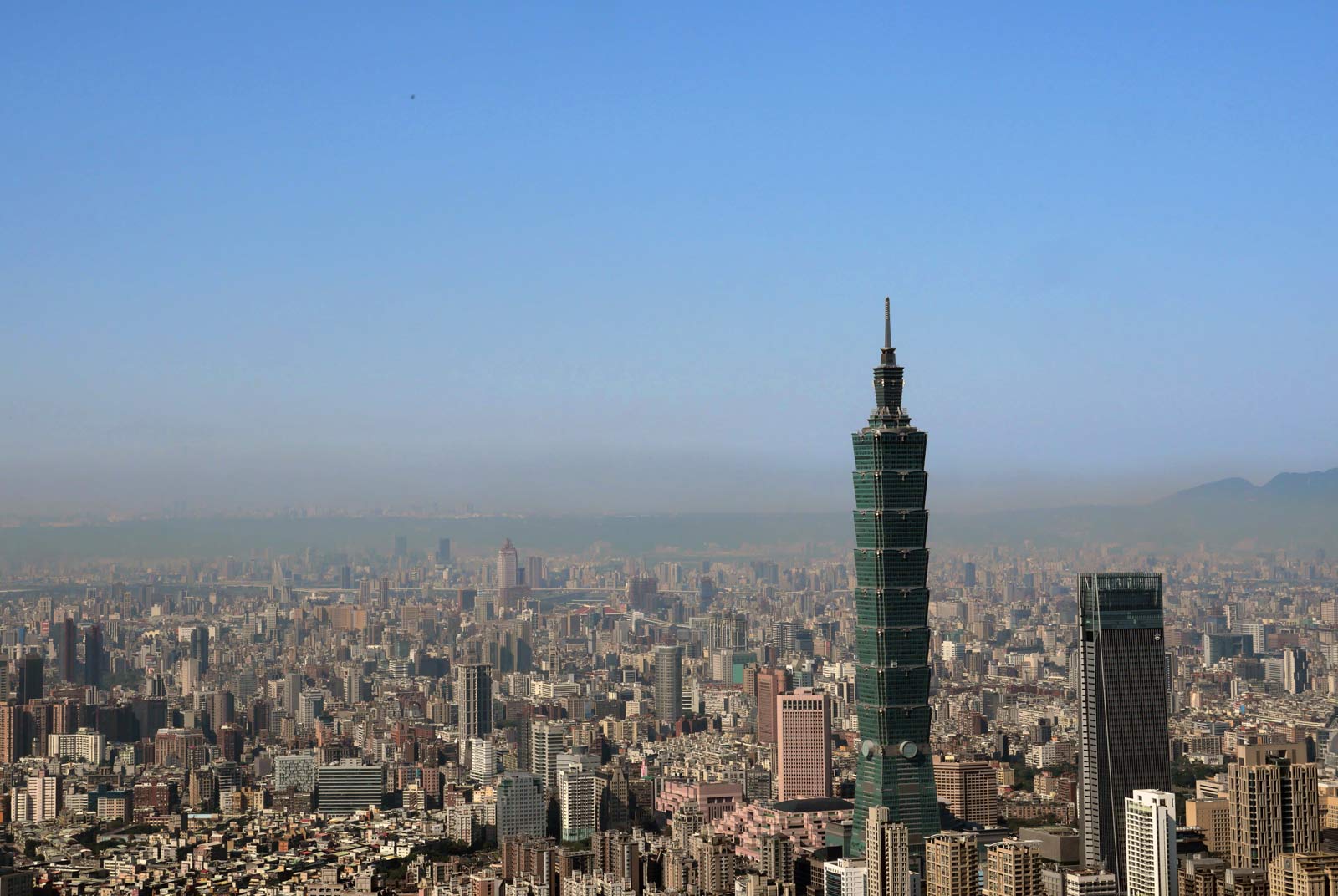A Call for Green, Equitable Cities

Source:Chien-Tong Wang
In this op-ed, Chloé Salmon highlights the urgent need for climate-resilient cities, points out unique urban challenges and the importance of transitioning to green urbanism. How can cities achieve resilience and inclusivity in their green development strategies?
Views
A Call for Green, Equitable Cities
By Chloé Salmonweb only
In the wake of dramatic floods submerging the streets of New York City, subway stations inundated, and swirling water vortexes swallowing cars and debris, the world's attention is once again drawn to the urgent need for cities to prepare for the climate crisis. From heatwaves to flash-floods, the city’s plight mirrors a global trend — and Taiwan is no exception.
Ensuring that our cities are fully equipped to navigate a changing climate is an urgency that Taiwan’s next president cannot afford to ignore.
Taiwan's urban areas, though occupying less than an eighth of our land mass, are home to nearly 80% of our population. How we organize and develop our cities holds the key to our capacity to respond and adapt to the climate crisis.
Yet cities in Taiwan face a number of unique obstacles that stand in the way of sustainability, with urban development practices playing a pivotal role in their resilience. House hoarding for speculative purposes and the relentless cycle of construction and demolition are two major culprits eroding the resilience of our urban spaces.
Taiwan is grappling with an alarming epidemic of vacant dwellings, now numbering a staggering 1.66 million according to the latest data. To put this in perspective, France, with a landmass approximately 15 times larger than Taiwan, records three million vacant dwellings. Curtailing overbuilding presents one of several immediate measures that can mitigate the effects of urban sprawl while significantly reducing carbon emissions.
Trapped within the logic of financialization, our cities have failed to prioritize socio-ecological resilience. Simultaneously, unsustainable flood management and a lack of heat mitigation strategies perpetuate climate risks and increase vulnerability, particularly among marginalized communities.
Fortunately, these obstacles are not insurmountable. Cities in Taiwan have much to gain from adopting green and low-impact forms of urbanism. By undoing the socio-ecologically disastrous effects of historical development paths, we can strengthen our long-term climate resilience.
This transition begins with re-imagining urban landscapes in harmony with natural ecosystems, rather than at odds with them. This vision is well within our reach, yet it goes far beyond mere tree planting or even dotting the city with temporary green spaces.
Around the world, initiatives to enhance urban resilience are proliferating. Wetland rehabilitation projects are supporting flooding mitigation while restoring biodiversity habitats, while urban farms are enhancing food security while creating meaningful opportunities for community cohesion — just to name a few.
Yet research reveals a troubling and growing correlation between green development and gentrification, even within places like Taipei. The outcomes of current urban environmental management strategies are disproportionately affecting economically vulnerable populations, often resulting in residents becoming priced out of neighborhoods enriched with green public spaces, or worse yet, facing potential displacement due to other urban renewal schemes.
This raises a challenging yet vital question: How can we deliver on our vision of resilient and liveable cities with inclusivity and equity at the forefront?
Crucially, while green infrastructure and nature-based solutions are indispensable, they must be complemented by a people-centered approach to decision-making. We cannot introduce measures to green the city while simultaneously enabling unsustainable land development practices that erode our resilience and exacerbate inequalities.
Instead, we need meaningful opportunities for engagement and participation within our communities, particularly for marginalized individuals at the frontline of climate risk. Only then can we ensure that the benefits of more liveable cities extend to all, not just the privileged few.
While Taiwan cautiously moves towards making net-zero a priority, we must not forget that equitable and sustainable urban development practices are still largely missing from the government's rulebook.
As we accelerate our transition to a low-carbon future, may Taiwan’s future leader heed this call for change, and champion our collective right to thrive in sustainable and liveable cities.
(This piece reflects the author's opinion, and does not represent the opinion of CommonWealth Magazine.)
The CommonWealth English website and CommonWealth Magazine's Independent Opinion (獨立評論) continue to accept op-eds for the new president. Please follow this link for more info.
About the Author:
Chloé Salmon is a researcher and multimedia writer based in Taipei, exploring the intersection between urbanism, equity and climate change adaptation.
Have you read?
- What to do with Taiwan’s environmental policies?
- Allow new residents to take root in Taiwan
- Aotearoa
Uploaded by Ian Huang






